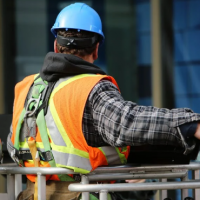
Who can make an accident at work claim?
If you have been injured at work and it wasn’t your fault, you could be entitled to work injury compensation. Suffering an injury at work can mean taking time off to recover which can be both stressful and expensive. Most people rely on their income, and being off work through no fault of your own can negatively impact you and your family’s life. Being out of work can make paying bills and caring for your household difficult. When accidents occur at the workplace, it is mainly due to the negligence of your employer. Your employer has a duty of care to try and keep you safe at work because of the Health and Safety at Work Act 1984. When employers fail to follow their duty of care, the results can be grave for employees who are left to suffer the consequences.
We have created this guide to provide you with some information regarding the types of accidents at work that you can claim compensation for.
Slips, trips and falls
This type of work-related injury is most common and accounts for 40% of reported injuries at work. Experiencing a slip, trip or fall at work can lead to serious injuries such as sprains, bruises, broken bones or concussion. Sometimes slips, trips and falls can happen without anybody being at fault. However, this type of workplace accident usually occurs because of negligence. For example, cleaning methods, trip hazards or other obstructions can result in a slip, trip or fall. Employers should have measures to prevent such accidents from taking place. If your employer fails to provide a duty of care, you could be eligible for compensation.
Dangerous practices in the workplace
Dangerous practices in the workplace can also contribute to serious accidents or even death. Examples of dangerous practices include employees operating equipment without proper training, using defective equipment, poor maintenance, and inadequate safety systems. To avoid such accidents, employers must enforce adequate training in the workplace to ensure employees understand how to operate tools and equipment. Employers also have a duty of care to ensure that the workplace is orderly and clean to prevent accidents.
Dangerous machinery
There are many reasons why dangerous machinery can cause workplace accidents. Poor training and lack of supervision is the main cause of machinery-related injuries. Employers must ensure that staff receive proper training to operate the machinery in the workplace. Machinery can also be dangerous when it is unsafe to use. Employers must ensure that machinery is PAT regularly tested to guarantee it is safe to use. Accidents can also occur when staff operating the machinery aren’t PPE-equipped. Personal protective equipment (hard hats, goggles, boots, hi-vis jackets) is crucial in an industrial workplace; employers who fail to enforce it risk being sued for negligence.
Falls from height
Falling from height can be a traumatic, life-changing accident for construction workers, scaffolders, roofers and window cleaners. Falling from height can occur when your employer fails to carry out a risk assessment before you ascend the equipment. Employers should also be sure that the equipment is dry, sturdy and free of any obstacles. You should also receive PPE, and a harness to prevent a fall. Furthermore, you can claim negligence if you fell from faulty equipment such as a damaged scissor lift or if you fell from a raised platform in dangerous weather conditions. If you have suffered a fall from a height, you may be entitled to compensation.
Falling objects
Injuries sustained from falling objects can be severe or even life-threatening, especially if the object struck you on the head. Facial injuries, brain damage, back injuries and spinal injuries are other injuries you can experience with falling objects. This type of accident is most common in warehouses where goods are stacked and moved regularly. Employers have a duty of care to provide proper risk assessments in the workplace, shelves are stable and they must pay close attention to how goods are stacked. If your employer has failed to keep the workplace safe from falling objects then you could sue them for negligence.
How to prove your case
- Take photographic evidence of the accident scene and your injuries.
- Seek medical assistance.
- Get a hold of any camera footage
- Ask witnesses for their details so they can provide you with witness statements
- Report the accident to prove the location, time and date of your accident!
Get in touch
If you have been injured at work due to third-party negligence, you could be entitled to compensation. At TDP Solicitors we understand that no amount of money can ever make up for the painful injuries you have sustained, but compensation can provide useful financial aid should you be out of work for a considerable amount of time or if you wish to seek therapy. For more information about claiming compensation for accidents at work, please call us on 0151 242 5111.
